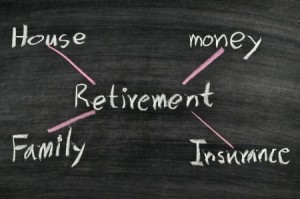Early & Semi-Retirement
If there’s one thing we all dream about, it’s early retirement. Winning the lottery would enable us to buy the house, car, and clothes of our dreams. But what it would really allow us to do is retire!
Even without winning the lottery, this dream may be possible to realize. Retiring early takes careful planning, serious saving, and perhaps a bit of luck.
Why It’s Difficult
Retiring early has a number of factors working against it. To retire early, you must take into account the following challenges:
1. Inflation
If you retire early, the benefits that you will receive from Social Security and a pension (if you have one) will not be indexed to inflation. Since inflation erodes the purchasing power of the amount of money you can expect from these plans, you will have to make up even more of your pre-retirement income with your own savings.
2. Social Security and Pension gap
You usually don’t receive payments from these programs until you’re in your 60s, so you will have to replace this income in the interim.
3. Retirement saving slows
If you stop earning money, your retirement savings will stop growing as quickly, so your retirement savings will have to be large enough to provide income for a longer period of time.
4. Higher vulnerability to unexpected events
Not only do your retirement savings stop growing, it is more likely to be threatened by unexpected events. To retire early, you need a sufficient financial cushion to cover the unexpected, such as:
- Medical bills
- Higher than expected inflation
- Higher taxes
- Lower than expected returns on your investments
5. Less or no insurance coverage
Medicare won’t cover you, so unless you’re still covered by another insurance plan, you’ll have to pay for your own medical and dental insurance.
The Good News
Many forces are a challenge to early retirement, but there are some factors that work in your favor:
1. Paid-off house
If you have paid off your house, you can eliminate house payments from your budget.
2. The “golden boot”
If you get “downsized,” your severance package may offer a year’s pay, but more importantly, extended medical insurance and pension indexing.
3. Early retirement programs
Many companies allow partial or full retirement at middle age if you have enough years of service with the company. These programs usually include health insurance and are often a way to draw on your pension before you actually retire.
4. Semi-retirement
Working half-time or as a part-time contractor or consultant can make semi-retirement a very realistic possibility. If you can earn enough to use retirement savings programs, you’ll be even better off.
5. IRA/401(k) loopholes
You can begin to draw from the assets in IRAs and 401(k)s penalty free (but not tax free) before age 59½ if you have a specifically defined and filed plan to withdraw the assets in equal increments. To do this, you should consult a financial advisor.
Making a Plan
If you’re determined to retire early, consider the following suggestions:
|
Define your goal. When do you want to retire? Obviously, the earlier you retire, the more difficult it will be. Use our Saving for Retirement Tool to see how realistic different retirement ages are given your savings, the expected rate of inflation and return on investments. |
|
|
Make sure that your personal retirement goals are very clear. Your personal goals, hopes, and expectations may have unexpected financial consequences that you need to take into consideration. To clarify these goals, go to our Setting Retirement Goals section. |
|
|
Account for large one-time expenses, such as paying for your child’s education or significant travel. |
|
|
Make conservative estimates for inflation and your return on investments. You need to be prepared for worst-case scenarios. |
Having thoroughly thought through your goals and used our calculator to find a realistic retirement schedule, do you still plan to retire early? Great! At this point, your next step should be to consult a trusted certified financial planner or advisor.


